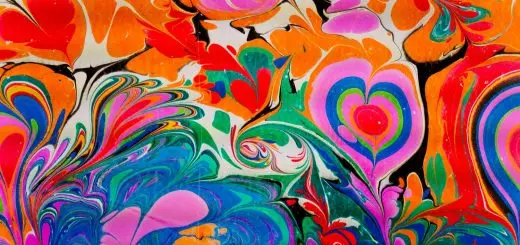Atman and Jiva: Individual Soul in Hindu Philosophy

Looking for more amazing products? Check out our online store and explore our collection here! Happy shopping!
Before diving in, please note: This post is for informational purposes only. If you’d like to know more about how we approach topics, feel free to check out our friendly Disclaimer Page.
Hey there, amazing readers! 
We’re committed to delivering quality posts, and your support (even just sticking around despite the ads) means everything to us. So, bear with us, and thanks for helping us keep the good vibes rolling. Now, on to the fun stuff!
TRANSLATE BUTTON AT THE END OF THE ARTICLE
A Quick Overview
Hinduism, one of the oldest religions in the world, has a rich philosophical tradition that explores the nature of the self.
Central to Hindu philosophy are the concepts of Atman and Jiva, which refer to the individual soul.
Understanding the distinctions between Atman and Jiva is crucial to grasping the Hindu perspective on the self, existence, and liberation.
Introduction to Atman and Jiva in Hinduism
In Hindu philosophy, the concepts of Atman and Jiva are fundamental to understanding the nature of the self.
Atman is the eternal, immutable self that is believed to be present in all living beings.
It is often described as pure consciousness, beyond the physical body and mind.
On the other hand, Jiva refers to the individual soul, which is associated with a specific body and mind.
Understanding the Concept of Atman
Atman is considered to be the true essence of an individual, distinct from the transient aspects of the physical body and mind.
It is seen as the unchanging core of a person’s being, unaffected by the fluctuations of life.
Atman is believed to be eternal, infinite, and unbounded by time and space.
It is the source of consciousness and the ultimate reality in Hindu philosophy.
The Significance of Jiva in Hindu Philosophy
Jiva, on the other hand, is the individual soul that inhabits a particular body and mind.
It is the locus of personal identity and experiences, shaped by karma (actions) from past lives.
Jiva is subject to the cycle of birth and death, known as samsara, until it attains liberation or moksha.
The experiences of Jiva in each lifetime are believed to be a result of past actions and thoughts.
Atman: The Eternal, Immutable Self
Atman is often compared to a flame that remains unchanged despite the various forms of fuel it may consume.
It is the unchanging essence that underlies the ever-changing experiences of life.
Atman is considered to be beyond duality, free from all limitations, and the true self that exists beyond the physical body and mind.
Realizing one’s Atman is a central goal in Hindu spirituality.
Jiva: The Individual Soul
Jiva is the individual soul that experiences the world through the senses and mind.
It is the reflection of Atman in the physical realm, carrying with it the impressions and desires accumulated over countless lifetimes.
Jiva is responsible for experiencing the consequences of its actions, both positive and negative, and is bound by the cycle of birth and death until it achieves liberation.
Relationship Between Atman and Jiva
The relationship between Atman and Jiva is complex yet interconnected.
Atman is the universal self that pervades all existence, while Jiva is the individualized expression of Atman in each living being.
Despite appearing as separate entities, Atman and Jiva are ultimately one and the same, connected at the deepest level of consciousness.
Realizing this unity is a key aspect of spiritual enlightenment.
Reincarnation and the Role of Atman
In Hindu belief, the cycle of birth and death is driven by the concept of reincarnation, where Jiva takes on different bodies in each lifetime based on its karma.
Atman, as the eternal self, remains unaffected by the process of reincarnation and serves as the witness to the experiences of Jiva.
The goal of reincarnation is to learn, grow, and ultimately attain liberation from the cycle of samsara.
Karma and its Impact on Atman and Jiva
Karma plays a crucial role in the journey of Atman and Jiva.
The actions and intentions of an individual, as reflected in karma, determine the experiences and circumstances of Jiva in each lifetime.
Positive karma leads to favorable outcomes and spiritual progress, while negative karma results in suffering and setbacks.
Understanding and managing one’s karma is essential for spiritual growth and liberation.
Liberation of Atman: Moksha
The ultimate goal of Hindu spirituality is the liberation of Atman from the cycle of samsara, known as moksha.
Moksha signifies the realization of one’s true nature as Atman, free from the illusions of the physical world and the limitations of the ego.
It is a state of eternal bliss, unity with the divine, and freedom from the cycle of birth and death.
Attaining moksha is the highest aspiration for spiritual seekers in Hindu philosophy.
The Journey of Jiva towards Liberation
The journey of Jiva towards liberation involves understanding the true nature of the self, overcoming attachment to the physical world, and purifying the mind and heart through spiritual practices.
By cultivating virtues such as compassion, selflessness, and devotion, Jiva can transcend its limited identity and merge with the universal consciousness of Atman.
The path to liberation is one of self-realization, introspection, and inner transformation.
Atman and Jiva in Hindu Scriptures
The concepts of Atman and Jiva are prominently featured in Hindu scriptures such as the Upanishads, Bhagavad Gita, and Vedanta philosophy.
These texts explore the nature of the self, the relationship between Atman and Jiva, and the path to spiritual liberation.
The teachings of sages, saints, and enlightened beings emphasize the importance of realizing one’s true self and attaining liberation from the cycle of samsara.
Contemporary Perspectives on Atman and Jiva
In modern times, the concepts of Atman and Jiva continue to inspire spiritual seekers, philosophers, and scholars around the world.
Many contemporary thinkers interpret these concepts in relation to psychology, consciousness studies, and transpersonal spirituality.
The timeless wisdom of Atman and Jiva offers profound insights into the nature of the self, the purpose of existence, and the quest for ultimate truth and liberation.
Conclusion
In conclusion, the concepts of Atman and Jiva are central to Hindu philosophy, providing a profound understanding of the nature of the self and the journey towards spiritual liberation.
Atman represents the eternal, immutable self, while Jiva symbolizes the individual soul that undergoes the cycle of birth and death.
The relationship between Atman and Jiva is intertwined, reflecting the unity of all existence and the ultimate goal of realizing one’s true nature.
By exploring the depths of Atman and Jiva, one can embark on a transformative journey towards self-realization, spiritual growth, and liberation from the cycle of samsara.

The Enlightenment Journey is a remarkable collection of writings authored by a distinguished group of experts in the fields of spirituality, new age, and esoteric knowledge.
This anthology features a diverse assembly of well-experienced authors who bring their profound insights and credible perspectives to the forefront.
Each contributor possesses a wealth of knowledge and wisdom, making them authorities in their respective domains.
Together, they offer readers a transformative journey into the realms of spiritual growth, self-discovery, and esoteric enlightenment.
The Enlightenment Journey is a testament to the collective expertise of these luminaries, providing readers with a rich tapestry of ideas and information to illuminate their spiritual path.
Our Diverse Expertise
While our primary focus is on spirituality and esotericism, we are equally passionate about exploring a wide range of other topics and niches 

To ensure we provide the most accurate and valuable insights, we collaborate with trusted experts in their respective domains 
Our blog originally focused on spirituality and metaphysics, but we’ve since expanded to cover a wide range of niches. Don’t worry—we continue to publish a lot of articles on spirituality! Frequently visit our blog to explore our diverse content and stay tuned for more insightful reads.
Hey there, amazing reader! 
Check out our store here and take a peek at some of our featured products below! Thanks for being awesome!











